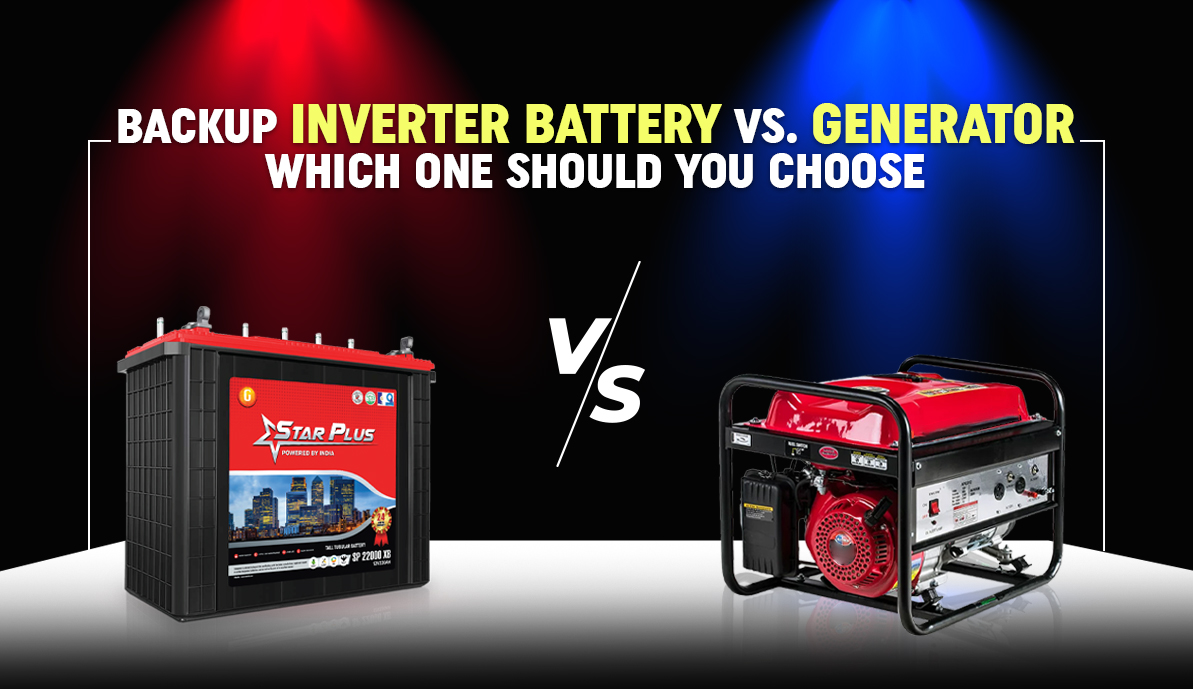When the electricity goes out, you’re faced with a choice: sit in the dark or invest in a solution that keeps the lights on. Traditionally, the go-to option for backup power has been fuel-powered standby generators, also known as whole-house generators. These generators dominated the market, providing a reliable source of power during outages. However, a quieter and more eco-friendly alternative has emerged: home inverter battery backups.
These batteries, along with inverters, form a stable and reliable source of backup power during power outrages. Many inverter dealers in Lagos also manufacture batteries that together provide a comprehensive power backup solution to people.
In this comprehensive guide, we’ll explore the differences between battery backups and generators, helping you navigate the pros and cons of each technology to make an informed decision.
Battery Backups
Home battery backup systems store energy that can be used to power your home during an outage. These battery backups run on electricity sourced either from your home solar system or the electrical grid. One significant advantage is their environmental friendliness compared to fuel-powered generators. Additionally, they may prove to be cost-effective in the long run.
If you’re on a utility plan, a battery backup system by battery manufacturers in Nigeria can help you save on your electricity bill. By utilizing stored energy during peak usage hours, you can avoid high electricity rates. During off-peak hours, you can use electricity as usual, but at a cheaper rate. If you have solar panels, any excess electricity generated can be stored in the battery, providing power during the night or periods of panel inefficiency.
Virtual power plants, where you relinquish some control over your battery’s charge to a utility or third party, offer an increasingly available option. This allows you to earn money by contributing to the energy grid.
Generators
Standby generators, on the other hand, automatically connect to your home’s electrical panel and kick on when the power goes out. These generators typically run on fuel, such as natural gas, liquid propane, or diesel. Some generators feature a “dual fuel” capability, allowing them to run on either natural gas or liquid propane.
Certain natural gas and propane generators can connect directly to your home’s gas line or propane tank, eliminating the need for manual refilling. However, diesel generators do require regular refilling to keep running.
Battery Backup vs. Generator
While both inverter batteries and generators serve the same fundamental purpose, they come with different costs, maintenance requirements, and performance characteristics.
Pricing
In terms of upfront cost, battery backups by battery manufacturers in Nigeria are generally pricier than generators. However, generators incur ongoing fuel expenses, potentially surpassing the initial cost of a battery backup over time. For battery backups, you’ll need to cover the upfront cost of the system and installation, ranging from thousands of dollars.
Installation
Inverter Battery backups gain a slight edge in this category as they can be mounted to the wall or floor with relative ease. In contrast, installing a generator involves additional work, and professional assistance is necessary for both types of installations. Both processes typically require a full day of work and may cost several thousand dollars.
Beyond device setup, generator installation includes pouring a concrete slab, connecting the generator to a dedicated fuel source, and installing a transfer switch.
Maintenance
In terms of maintenance, battery backups are the clear winners. They operate quietly, independently, and produce no emissions. Generators, however, can be noisy and disruptive during operation. Depending on the fuel type, generators may emit exhaust or fumes, potentially causing irritation to you or your neighbors.
Power Duration
Standby generators excel in providing continuous power for an extended period. As long as there is enough fuel, generators can run continuously for up to three weeks. In contrast, battery backups provide power for only a few hours on their own. Additional power can be derived from a solar panel system or by using multiple batteries in a single setup.
Expected Lifespan and Warranty
Battery backups generally come with longer warranties than standby generators. However, these warranties are measured differently. Over time, battery backup systems lose their ability to hold a charge, similar to phones and laptops. Therefore, battery backups include an end-of-warranty capacity rating, ensuring the battery retains a specified percentage of its capacity by the end of the warranty period.
Standby generators, with proper maintenance, can run for approximately 3,000 hours. If you run your generator for 150 hours per year, it should last about 20 years.
Which Power Backup Is Right for You?
In most cases, battery backup systems emerge as the preferred choice. They are environmentally friendly, easier to install, and cheaper to run in the long term. Additionally, they offer longer warranties than standby generators.
However, traditional generators can still be a viable option in certain scenarios. With only one generator needed to restore power during an outage, upfront costs are lower. Standby generators can also outlast battery backup systems in a single session, making them a safer choice for prolonged outages lasting days at a time.
The decision between a battery backup and a generator depends on your specific needs, preferences, and budget. Each option comes with its unique advantages and considerations, and understanding the nuances of both technologies is crucial for making an informed choice in ensuring an uninterrupted power supply during outages.



0 Comments